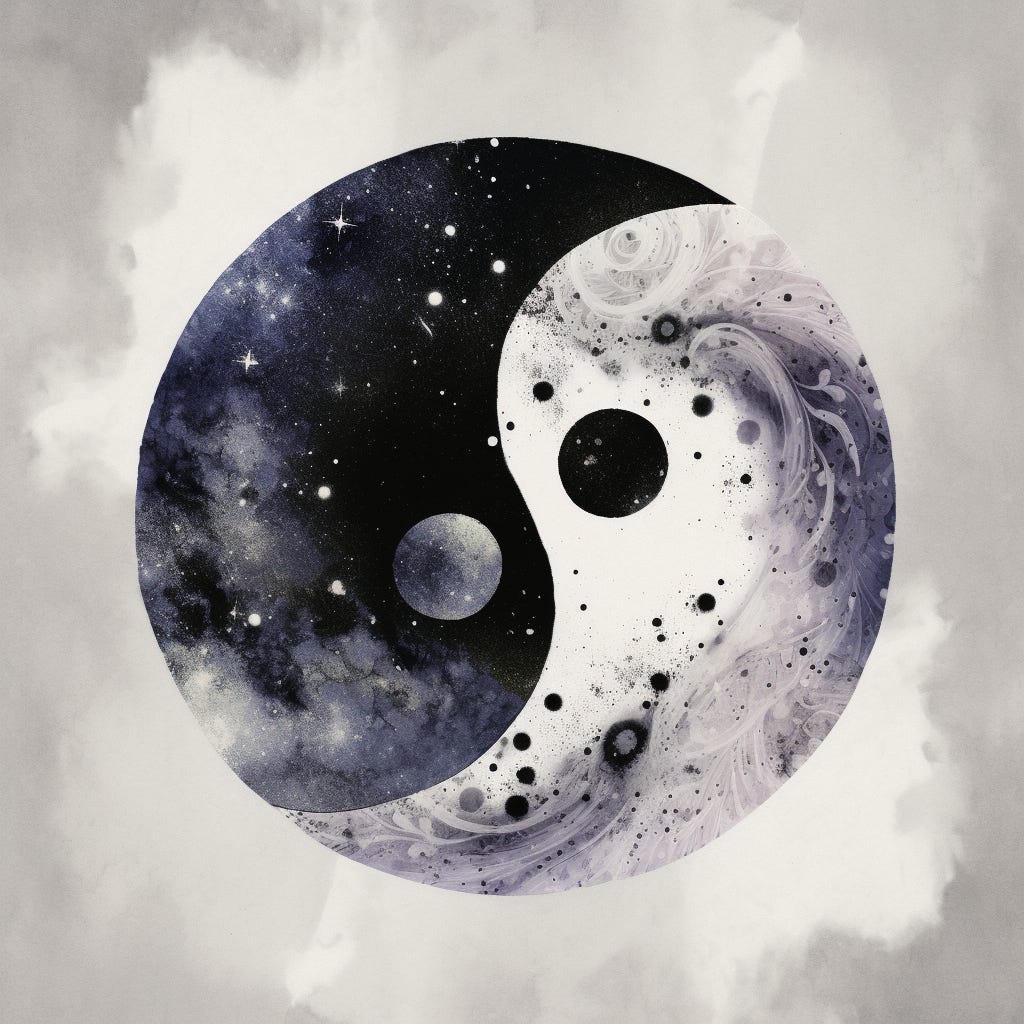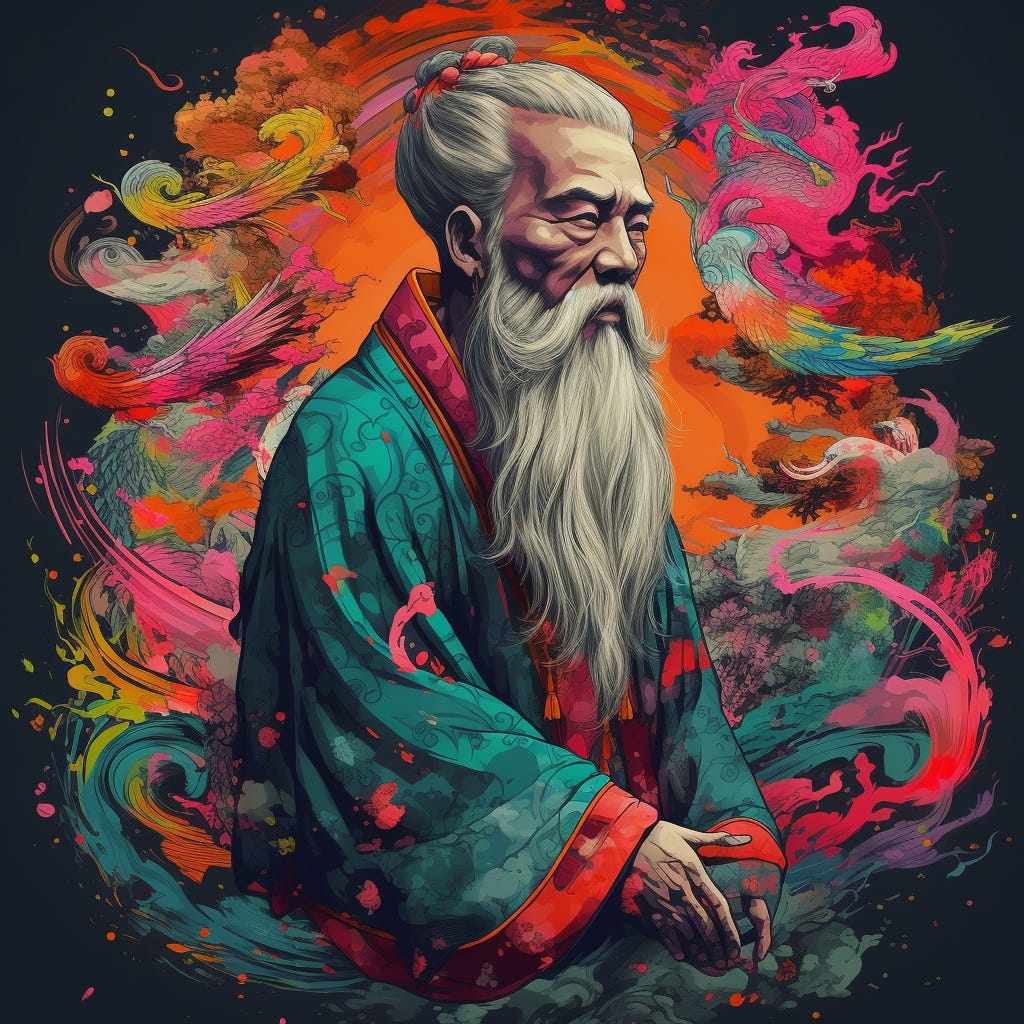Why Enlightenment Doesn't Exist in Taoism
While many spiritual seekers get bogged down searching for enlightenment, Taoism proposes a simple solution.
Taoism subtly differs from certain spiritual paths, as it doesn’t overtly address what we call “enlightenment.” Taoism focuses on embracing the innate rhythm of the Tao, rather than actively seeking specific objectives or existential conditions.
The Tao
Taoism emphasizes that the Tao, representing the ultimate reality, transcends human comprehension.
The concept defies description or attainment through deliberate pursuit. Rather, it advocates experiencing the Tao by harmonizing one’s life with its principles and embracing its inherent wisdom.
This perspective on Taoism challenges individuals to embrace paradox and mystery, urging them to find fulfillment through alignment with the Tao, an endeavor devoid of deliberate striving.
The Tao symbolizes the innate harmony and balance that permeates the entire cosmos. Its essence lies in its adaptability and lack of fixation. Embracing the Tao entails aligning oneself with the rhythms of nature and embracing one’s genuine essence.
By flowing with the Tao, individuals synchronize with the inherent cadence of the universe, responsibly partaking in the cosmic dance of existence.
The goal of Taoist practice is to cultivate a state of wu-wei, which is often translated as “effortless action.”
This is not a state of passivity or laziness, but rather a state of being in which one is fully aligned with the Tao and one’s actions are guided by the Tao’s wisdom.
In Taoism, enlightenment is unnecessary as the Tao is inherently present and accessible to all. The objective isn’t attainment but rather aligning with reality.
Balance
The Taoist approach to spirituality differs significantly from the Western understanding of enlightenment. Taoism emphasizes the harmony of opposites, the flow of life, and the pursuit of balance.
On the other hand, the Western idea of enlightenment emphasizes the pursuit of knowledge, reason, and individualism. These distinctions shape the spiritual practices and perspectives embraced by each tradition.
Taoism revolves around aligning with the natural and unhindered progression of the Tao, in contrast to the conventional notion that enlightenment demands rigorous exertion and pursuit.
The philosophy of Taoism centers on the harmonious integration of the individual in the natural order of the universe, where striving and endeavors are minimized, and flow and adaptability are prioritized.
This approach emphasizes the tranquility and simplicity innate to existence.
Present Moment
Taoism underscores the importance of aligning oneself with the present moment, prioritizing balance and tranquility.
Furthermore, enlightenment is frequently regarded as a condition of surpassing worldly limitations, representing profound spiritual awakening and insight.
Wu-Wei
Taoism places great emphasis on wu-wei, the concept of effortless action, alongside the perception of enlightenment as a state of complete knowledge or profound understanding.
The philosophy of Taoism underscores the wisdom of wu-wei, aligning with the belief that attaining enlightenment signifies the achievement of absolute comprehension and profound insight into existence, rendering it a philosophy deeply rooted in the quest.
In comparing the two ideologies, it’s evident that both Taoism and Western spirituality share certain parallels. They both place significant emphasis on self-cultivation and the aspiration for a heightened existence.
Nevertheless, their approaches diverge in focus.
Taoism advocates harmonious coexistence with the natural world and one’s inner essence, whereas Western enlightenment strives for transcendence and attaining perfection.
The absence of the concept of “enlightenment” in Taoism is a subject of great philosophical discussion. Yet, it unequivocally signifies a unique spiritual comprehension distinct from other traditions.
Hi, I’m Paddy. Thanks for reading my article. I’m a counselor, coach and meditation teacher.
If you’d like to contact me regarding a counseling session or about writing, you can contact me here. My different social media channels are here.




